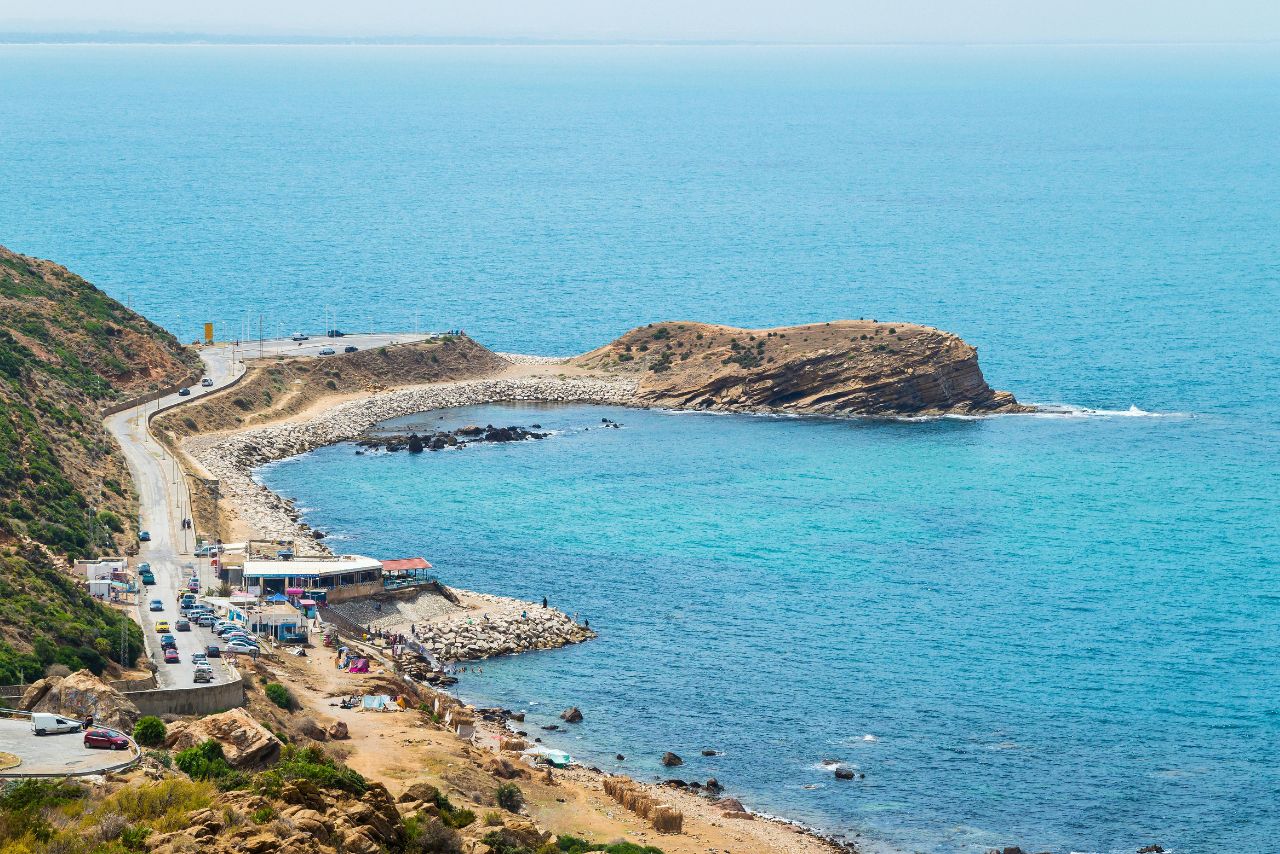What really makes travel expensive?
When you think about it, most of what we spend on while exploring a new city comes down to the basics: food, accommodation, transport, sightseeing, and a bit of shopping for souvenirs.
Some destinations truly have a high cost of living, but across Africa, there are countries where these things are refreshingly affordable.
You can spend as little as $20-$50 per day in some cities, and that covers good meals, comfortable stays, and a few adventures in between.
So exploring a destination for three days might only cost around $100-$150; that’s not just affordable, that’s beautifully within reach.
In this guide to the 7 cheapest African countries to visit in 2026, you’ll discover destinations that deliver big value for every dollar spent.
These are the places where your travel dreams and your savings can finally agree.
If your wanderlust is nudging you, this is your invitation to act.
Let’s go!
Rwanda

If you’re looking for a destination where nature, culture and values combine, Rwanda is a standout.
The rolling green hills, the modern-friendly capital of Kigali, and the sense of renewal make it more than just a “cheap country”; it offers real travel depth.
- Budget travellers to Rwanda can aim at US $18–39/day (approx. RWF 26,000–56,000) for basic accommodation, meals, transport and local experiences.
- To keep costs down: stay in guesthouses outside major parks, eat local fare (brochettes, ugali) for around US $5–10, and use public buses.
- Avoid premium activities like gorilla trekking if you’re keeping it budget-friendly (permits alone can cost substantially more).
What makes Rwanda unforgettable is that you’ll walk through Kigali’s clean streets and explore hillside lodges overlooking valleys.
You will also get to visit community projects and feel welcomed in a country that’s reinventing itself.
The money you save goes into experiences rather than just a room with a view.
READ ALSO: How Far Does $100 Go in Kigali? A 24‑Hour Test‑Run
Tunisia

Your daily budget in Tunisia can be incredibly low (US $30–45), especially if you embrace the local lifestyle.
It is North Africa’s hidden gem, often overlooked for its larger neighbors, which means lower prices and fewer crowds for you.
This nation delivers stunning Mediterranean beaches, the evocative ruins of ancient Carthage, and timeless desert landscapes all rolled into one easily navigable country.
- Street food is king here, and your culinary adventures will be both delicious and cheap.
- A crispy, egg-filled Brik pastry or a satisfying bowl of hearty Lablabi (chickpea soup) will set you back only about TND 3–5 (about $0.95–$1.60).
- Accommodation is also highly affordable; guesthouses and budget hotels often start around $25 (TND 78) per night.
- Intercity travel is smooth and inexpensive via the public transport network; for instance, local metro and tram fares in Tunis are minimal, often less than TND 0.50 ($0.16).
Use the savings to treat yourself to an afternoon in the famous blue and white village of Sidi Bou Said, soaking up the seaside charm.
Morocco
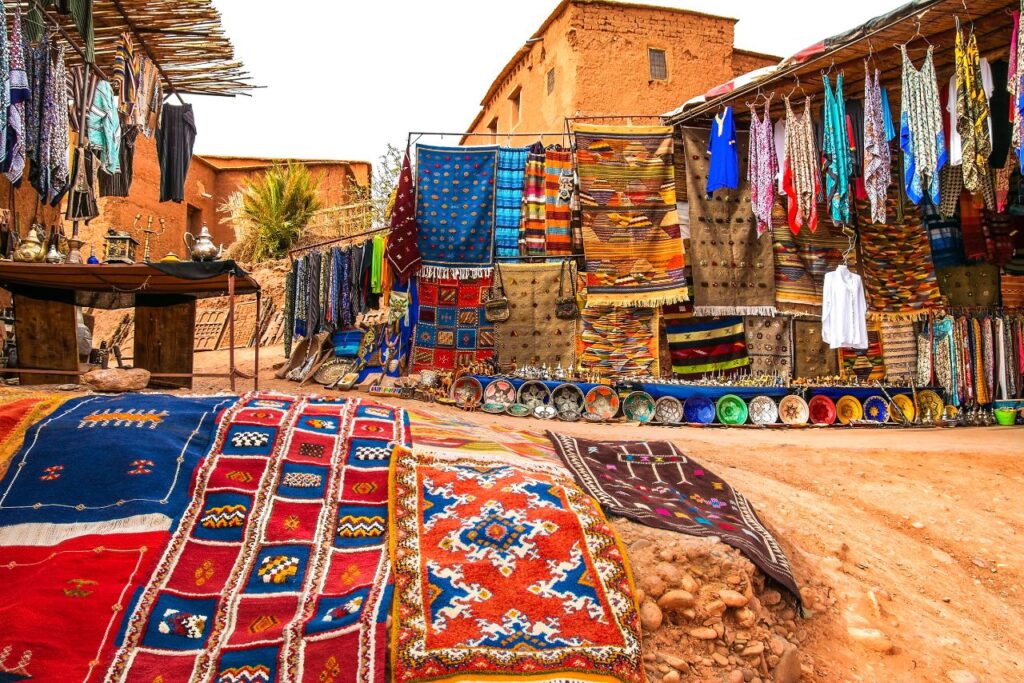
Daily budgets of about US $30–50 make Morocco a top pick for budget travel in Africa in 2026.
To maximize your budget in Morocco, bypass the expensive tourist restaurants for the vibrant street food scene.
- A traditional, aromatic Tagine (stew cooked in an earthenware pot) from a local spot is a quintessential, budget-friendly meal, costing roughly MAD 40–70 ($4–$7).
- In cities like Fes, you can find a bed in a beautiful, traditional Riad (guesthouse) dormitory for about $15 (MAD 150) a night.
- For long-distance transport, the public bus network, including companies like CTM and Supratours, provides comfortable and reliable service between cities for excellent prices.
- A ticket from Marrakech to Essaouira, for instance, might cost around MAD 100–150 ($10–$15), a great price for a scenic journey to the Atlantic coast.
The experience of getting lost in the blue streets of Chefchaouen or bargaining for leather goods is as authentic as it is affordable.
READ ALSO: Things to Do in Chefchaouen: A Complete Travel Guide
Ghana
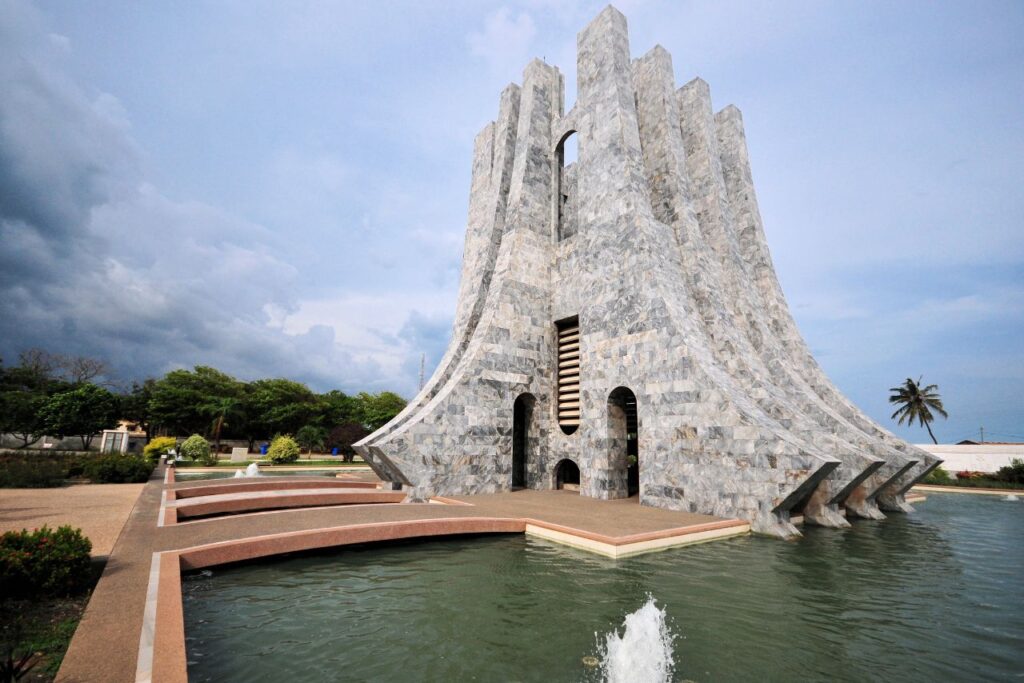
The moment you arrive in Ghana, you’ll sense the warmth of the people, the food, and the music.
Ghana offers rich travel for less.
- Budget travelers can aim at around US $10–20/day in modest style; in Ghanaian Cedi, that’s about GHS 150–300/day.
- Typical guesthouse rooms can cost GHS 100–200 (US $8–12/night), and street meals might cost US $1–3.
- To travel smart: use tro-tro minibuses (shared vans) between towns, stay in locally run guesthouses, and eat where locals eat: jollof rice, kelewele, and waakye.
Why it’s special: not only do you spend less, you gain more.
Ghana’s coast and heritage feel genuine and so it falls into the list of the cheapest countries in Africa for tourists.
You’ll dance, you’ll stroll markets, you’ll sit by the sea, and you’ll do it without stressing the budget.
READ ALSO: Kumasi Travel Guide (Ghana): Ashanti Kingdom, Markets & Traditions
Egypt
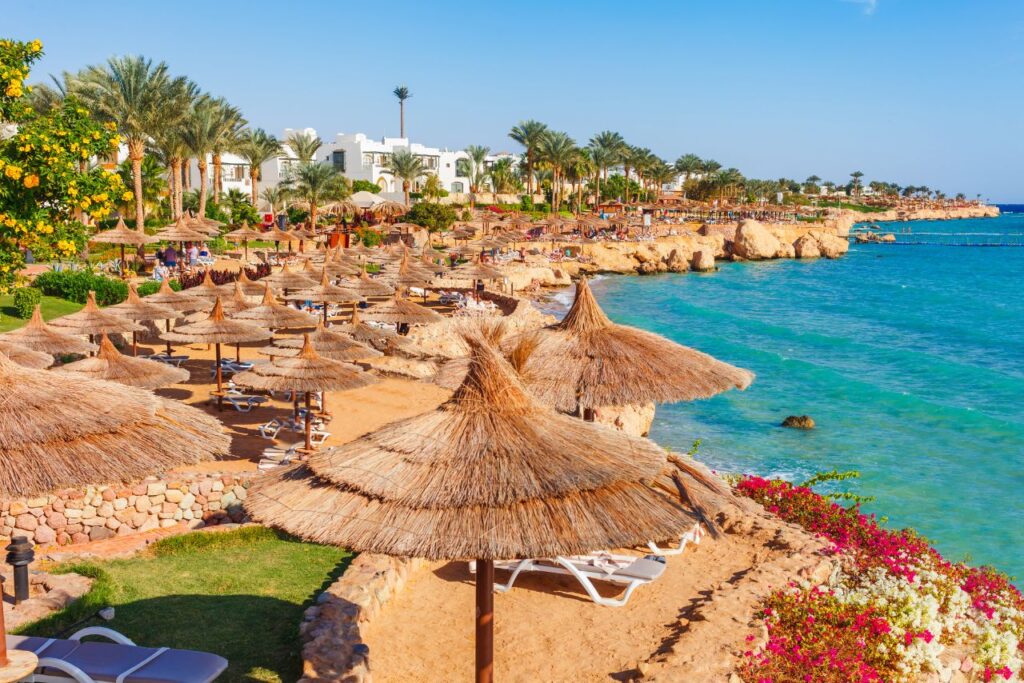
Egypt is an unparalleled destination where budget travel meets millennia of history.
Despite its global fame, the cost of living and local services remain extremely favorable for budget travelers.
- A budget traveler can plan for daily expenses of around US $30–50, though food and local transport can push costs even lower.
- Budget Accommodation: Hostels and local guesthouses (especially in places like Dahab, Luxor, or Aswan) can be found for as little as $10–30 per night.
- Food for less: The famous Egyptian street food, including Koshari (a mix of pasta, rice, and lentils) and fresh Taameya (Egyptian falafel), costs only $1–3 for a filling meal.
- Transportation Hacks: For intercity travel, use comfortable, air-conditioned public buses (like GoBus) instead of trains, which often have a higher “foreigner price.”
- Within Cairo, the Metro and ride-hailing apps like Uber/Careem are extremely cheap.
- The Big Sights: While entrance to the Pyramids and Valley of the Kings requires a fee (usually $10–20), exploring historic markets like Khan El Khalili or strolling the Nile Corniche in Aswan is free.
READ ALSO: Mali Travel Guide: History and Cultural Heritage
Malawi
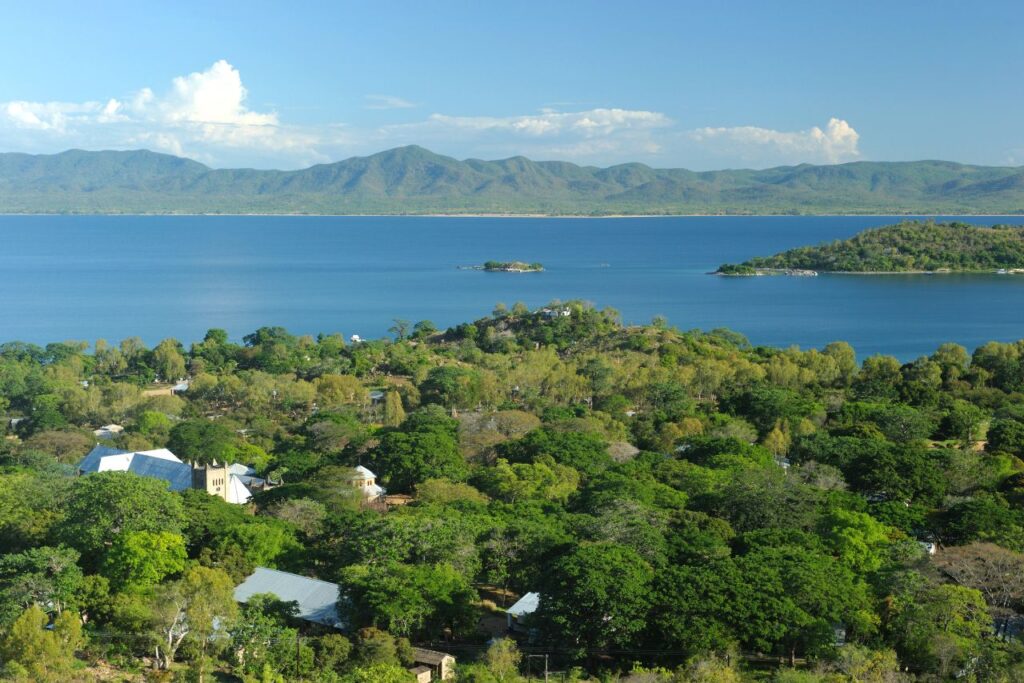
Malawi earns its nickname, the “Warm Heart of Africa”, from the genuine kindness and welcoming nature of its people.
The country is a top pick for budget travellers because of its simplicity, safety, and the stunning centrepiece that is Lake Malawi, a UNESCO World Heritage site.
Travel here is laid-back, focusing on natural beauty and cultural interaction, not high-cost resorts.
- According to recent data, budget travellers spend around US $19/day (MWK 33,589) and mid-range travellers spend up to US $43/day (MWK 75,041).
- Accommodation around Lake Malawi is incredibly affordable, with beachfront hostels and guesthouses costing just $10–$20 (MWK 17,000–33,589) for a basic private room.
- Local food, particularly fresh fish from the lake like chambo, is available for a few dollars from street vendors or local shacks.
Travel between towns is done cheaply using local minibuses, where the journey itself becomes an adventure of friendly conversation and incredible views.
You rarely need an expensive tour.
Tanzania
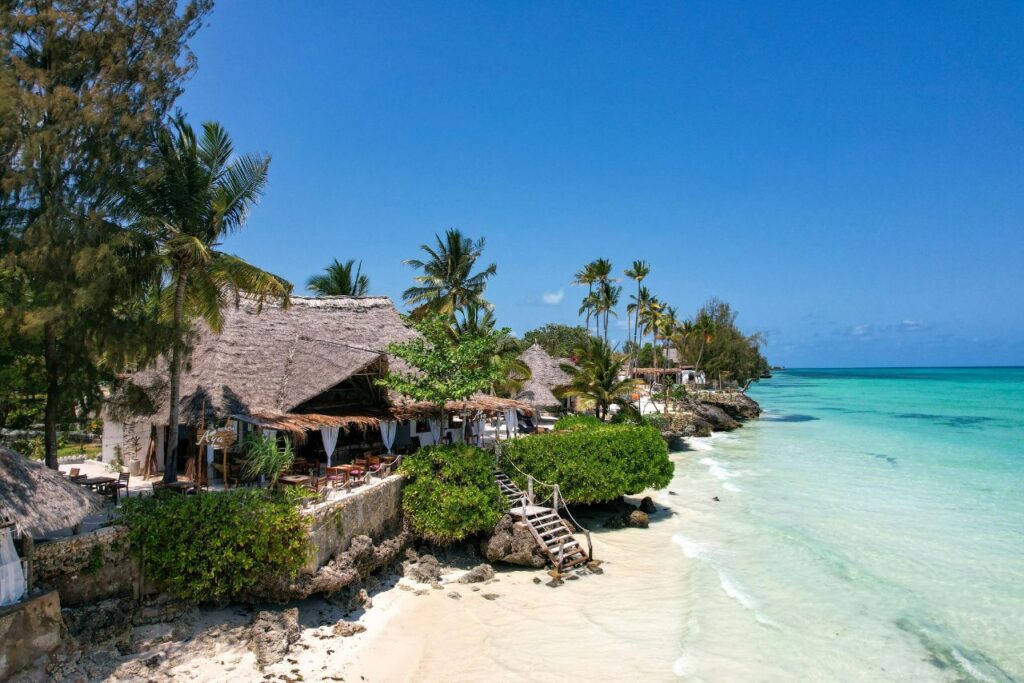
While Tanzania is globally famous for the expensive Serengeti safari and Mount Kilimanjaro climb, it offers a wealth of affordable experiences that often go overlooked.
The tropical island of Zanzibar is a prime example, offering stunning beaches, rich history in Stone Town, and incredible value compared to other island destinations worldwide.
- To keep your budget intact, focus on the island of Zanzibar. A local-style guesthouse or hostel in Stone Town can be secured for around $20–$30 (TZS 52,000–78,000) per night.
- The street food scene in Stone Town, particularly the night markets, offers an amazing variety of fresh seafood and local delicacies.
- A full, satisfying meal of freshly grilled skewers can be purchased for about TZS 10,000–15,000 ($3.80–$5.70).
- Ferries and local Dala-Dalas (shared taxis) are the cheapest ways to travel between Stone Town and the beach resorts.
If you dream of seeing Kilimanjaro, you don’t need to climb it; simply take a budget-friendly bus to the city of Moshi and enjoy the stunning view from one of the town’s local lodges.
Travel Tips for Exploring Africa on a Budget
Plan Ahead but Stay Flexible
Booking flights, accommodation, and major tours in advance often saves money, but keep some flexibility in your itinerary.
Local transport, street food, and spontaneous experiences often offer the best value and authentic moments.
Use Local Transport
Instead of taxis or private transfers, rely on buses, minibuses (tro-tros, dala-dalas), and trains.
They’re cheaper and give you a glimpse of daily life. For example, public buses in Rwanda, Tunisia, and Tanzania are affordable and safe.
Eat Like a Local
Street food and small local restaurants are budget-friendly and delicious.
Try koshari in Egypt, tagine in Morocco, jollof rice in Ghana, or chambo fish in Malawi.
Meals often cost just a few dollars, letting you enjoy authentic flavors without overspending.
Stay in Guesthouses or Hostels
Budget-friendly accommodation is widely available.
In Morocco, you can stay in a Riad dormitory for $15 a night; in Rwanda, guesthouses outside the city cost as low as $18/day.
Hostels and locally run guesthouses often provide warmth, safety, and cultural immersion.
Avoid Tourist Traps
Entry fees at major attractions can add up.
Focus on free or low-cost experiences like exploring local markets, walking tours, public beaches, or hiking.
In Egypt, visiting local neighborhoods and bazaars can be just as exciting as pyramids.
Travel Off-Peak
Visiting outside peak tourist seasons reduces costs significantly.
Accommodation, flights, and tours are often cheaper, and destinations are less crowded.
Countries like Tunisia, Morocco, and Ghana are great to explore during off-peak months.
Carry Small Local Currency
Many small vendors and buses don’t accept cards.
Keep local cash handy to avoid unnecessary fees and make small purchases easier.
For example, use TND in Tunisia, EGP in Egypt, MWK in Malawi, or TZS in Tanzania.
Pack Smart
Bring essentials to avoid paying extra for basics.
Sunblock, refillable water bottles, travel-sized toiletries, and comfortable walking shoes are a must for African cities and nature trips.
Respect Local Customs and Culture
Being polite, learning a few words in the local language, and understanding cultural norms will enrich your experience.
It often leads to friendly interactions and sometimes even discounts for travelers who engage respectfully with locals.
Travel Slowly
Instead of rushing through multiple countries, spend more time in each place.
Three days in Kigali or Zanzibar can give you authentic experiences without constant spending on transport.
Slow travel is cheaper and more immersive.
Take Advantage of Free Experiences
Africa is full of natural beauty that doesn’t cost a thing.
Watch sunsets over Lake Malawi, the Sahara, or the Nile; hike hills in Rwanda; stroll markets in Ghana; or explore public beaches in Zanzibar.
These moments are priceless.
Final Thoughts
Travel changes you in the best ways, and it doesn’t have to empty your wallet.
The experiences you’ll gain; walking through historic streets, tasting local dishes, watching sunsets over lakes or deserts, and connecting with people whose warmth stays with you long after you leave, are priceless.
These 7 African countries show that rich, unforgettable experiences don’t require a rich budget.
So pick a destination, plan your trip, and take that first step.
Africa is waiting to show you its colors, its life, and its stories.
Travel smart, travel fully, and let the continent prove just how beautiful and accessible adventure can be.

